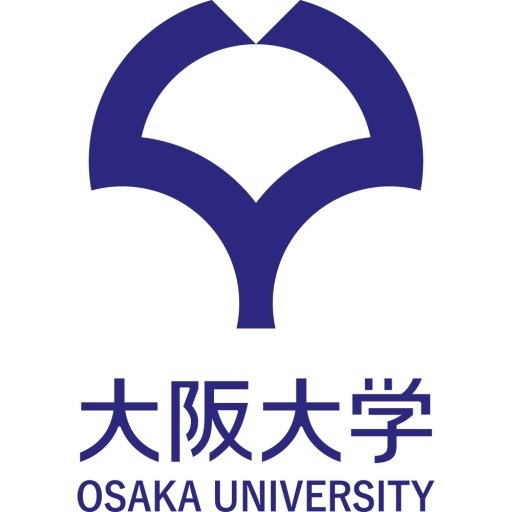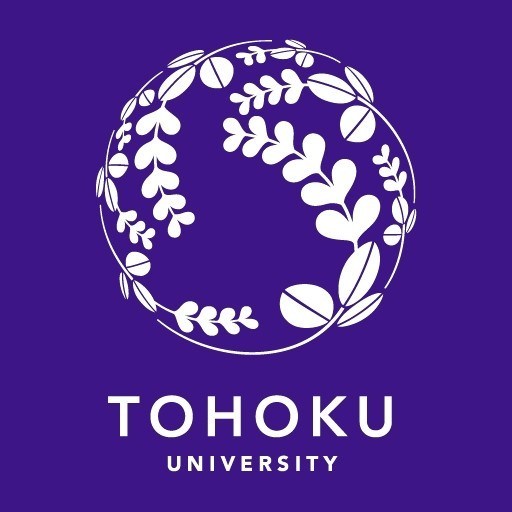Photos of university
The Global Society undergraduate program at The University of Tokyo is an innovative interdisciplinary course designed to prepare students for the challenges and opportunities of an increasingly interconnected world. This program aims to cultivate academically rigorous and socially conscious individuals who are equipped with a broad understanding of global issues, diverse cultural perspectives, and advanced communication skills. The curriculum integrates various disciplines such as political science, economics, sociology, international relations, and environmental studies, allowing students to develop a comprehensive understanding of the complex dynamics that shape contemporary global society.
Students in the program are encouraged to engage in rigorous research, participate in international exchanges, and collaborate on projects that address real-world problems. The program emphasizes critical thinking, intercultural competence, and ethical responsibility, fostering graduates who can contribute meaningfully to global development and intercultural dialogue. Courses are taught by leading experts and often incorporate case studies, fieldwork, and collaborative assignments designed to enhance practical understanding and problem-solving abilities.
Apart from coursework, students have opportunities for internships, study abroad programs, and participation in seminars and workshops focused on pressing global issues such as climate change, human rights, economic development, and technological innovation. The program also promotes the utilization of modern digital tools and methodologies, enabling students to analyze and interpret data with a global perspective.
Graduates of the Global Society program are prepared to pursue careers in international organizations, governmental agencies, NGOs, academia, and private sectors where they can apply their knowledge and skills to foster international cooperation, sustainable development, and cross-cultural understanding. The program’s comprehensive curriculum and its emphasis on real-world applications make it a unique and valuable educational pathway for students aspiring to become global citizens and future leaders in a diverse and complex world.
For the M.A. degree, students are required to earn a minimum of 14 credits from courses offered by the Graduate Program on Global Society (including 8 credits from the core curriculum) and 12 credits from courses offered by the Graduate School department with which they are affiliated (including 6 credits from research workshops). Students are allowed to take graduate and upper-division undergraduate (3rd and 4th year) courses offered by other graduate schools and undergraduate departments at the University with the permission of their academic advisors. In order to earn the M.A. degree, students are required to:
- complete a minimum of 30 approved credits;
- write a master’s thesis or submit the results of their research on selected subjects; and
- pass the final examinations.
Courses
- Transnational Markets and Civil Society
- Normative Basis of Global Society
- Research Workshop I - III
- Theory of International Interdependence III
- Theory of Social and Cultural Diversity I
- Theory of Social and Cultural Diversity IV
- Theory of Transnational Markets and Civil Society I
- Theory of Normativity in Global Society I
- Comparative Studies of the Normative Basis of Civil Society I
- Special Lecture on Global Society I
- Special Lecture on Global Society IV
- Seminar on Global Society II
- Seminar on Global Society IV
- Seminar on Global Society V
- Application fee: 10,000 yen
- Enrollment fee: 282,000 yen
Eligibility
M.A. program
Those who have completed or who expect to complete their undergraduate education (a Bachelor’s degree or the equivalent) by the time of enrollment * are eligible to apply for the M.A. program. Applicants are expected to have completed 16-year school education, including university education or its equivalent.
Please note that applicants who have completed the equivalent of 15 years of education must contact the GPEAK Admissions Office at the time of or prior to the submission of their application in order to confirm their eligibility. Applicants whose qualifications differ in any other respect from those stated above must contact the GPEAK Admissions Office by November 1, 2016.
- CHECKLIST (Form #1)
- APPLICATION FORM (Form #2)
- Certificates of all higher degrees and diplomas awarded or an attested document certifying that the applicant will graduate from a college, university, or other institution of higher learning by the time of enrollment.M.A. program applicants must submit their Bachelor’s certificate, and Ph.D. program applicants must submit both their Bachelor’s and Master’s certificates.If it is impossible to obtain the certificate(s) in English, please contact the GPEAK Admissions Office as soon as possible for further instructions.
- Official transcripts from each college, university, or other institution of higher learning attended.
- Three letters of recommendation including Form #3. Each letter and Form # 3 must be original and must be placed in a sealed envelope and signed across the seal by the recommender. Recommenders may send their letters directly to the GPEAK Admissions Office. Letters must arrive by the application deadline, January 31, 2017.
- TOEFL Official Score Report or IELTS Test Report Form.
Applicants must submit a copy of their Examinee’s Score Record (TOEFL) or Test Report Form (IELTS) with all accompanying documents within the application period. The Official Score Report (TOEFL) or Test Report Form (IELTS) should be sent, by the testing institution, directly to the GPEAK Admissions Office (TOEFL Institution Code = 6184). Applications missing the report sent by the testing institution will not be reviewed.English proficiency can also be demonstrated by the receipt of a Bachelor’s or other advanced degree from an accredited institution of higher education where English is the primary language of instruction. - GRE (Graduate Record Examinations) General Test Official Score Report.
Applicants must submit a copy of their Examinee’s Score Record together with all accompanying documents within the application period. ETS should send the Official Score Report directly to the GPEAK Admissions Office (Institution Code = 8326). Applications will not be reviewed without the Official Score Report. - Personal Statement. Applicants should describe, in 500 words or less, their past field of study, the reasons for their interest in the GSP program, their future career plans, and any other information they deem relevant to the consideration of their application.
- Research Proposal. Applicants should describe their detailed research plans, including the tentative title of their research topic, research design and methods, and relevant sources and data for research. For those applying for the M.A. program, the proposal should be between 900 to 1,000 words (excluding reference), and for the Ph.D. program, between 1,200 to 1,500 words (excluding reference).
- Three photos (size 4cm x 3cm). Applicants should attach one photo to the Application Form (Form #2) and enclose two additional photos with the name of the applicant written on the back of each photo.
- One Certificate of Remittance (English or Japanese). All applicants, except MEXT (Monbukagakusho) scholarship students and applicants to the Ph.D. program who expect to obtain a Master’s or professional degree from the University of Tokyo in the autumn 2017 must pay the application fee prior to submitting the application. Students residing outside of Japan must pay the application fee through the University of Tokyo’s online payment system (e-payment). Please visit the website and follow the instructions. The printed “result” page will constitute the “Certificate of Remittance” and must be enclosed with the application. Those residing in Japan may pay by bank transfer using a specified payment slip, by credit card, or at a convenience store. Further details are provided on Form #4. The Certificate of Remittance should be attached to the section designated on Form # 2 of the Application Form. MEXT scholarship students should submit a certificate of proof of their scholarship status instead of a certificate of remittance.
The University of Tokyo offers a variety of financing options for students enrolled in its Global Society program. These include merit-based scholarships, need-based grants, and financial aid packages designed to support a diverse student body. Merit-based scholarships are awarded to students demonstrating outstanding academic achievement, leadership abilities, and commitment to global issues. Need-based grants are available for students who demonstrate financial need, helping to alleviate the cost of tuition and living expenses. Additionally, the university participates in numerous government-sponsored scholarship programs, both domestically and internationally, which provide substantial funding for qualified students. International students enrolled in the Global Society program are encouraged to apply for scholarships such as the MEXT (Monbukagakusho) Scholarship, which covers tuition fees, provides a living stipend, and offers support for travel expenses. The university also facilitates external funding sources, including private foundations and corporate sponsorships, which provide scholarships tailored to specific disciplines or nationalities. The Financial Aid Office at the University of Tokyo advises students on the application procedures for these various funding options and assists in identifying suitable resources to meet individual financial circumstances. Furthermore, there are part-time work opportunities for students, including research assistantships and teaching assistant positions, which enable students to earn income while gaining valuable academic experience. The university’s commitment to supporting international and domestic students financially is integral to its mission of fostering global leaders. Overall, the Financing studies component at the University of Tokyo’s Global Society program aims to ensure that capable students can access high-quality education regardless of their financial background, offering a comprehensive support system that includes scholarships, grants, external funding, and employment opportunities.
The Global Society program at The University of Tokyo is designed to provide students with an in-depth understanding of contemporary global issues through an interdisciplinary approach that combines insights from social sciences, humanities, and policy studies. The curriculum emphasizes the development of analytical skills, critical thinking, and cross-cultural communication, preparing graduates to engage effectively in international contexts and address complex societal challenges. Students in the program have opportunities to participate in diverse research projects, internships, and exchange programs that broaden their global perspectives and foster practical experience. The program typically includes coursework on international relations, global economic systems, multiculturalism, environmental sustainability, human rights, and global governance. Faculty members are often leading experts in their fields, contributing to innovative research that informs teaching and policy recommendations. The program encourages collaboration among students from diverse backgrounds, enhancing their cultural competence and preparing them for careers in international organizations, government agencies, NGOs, and corporate sectors focused on global issues. Graduates of the program are expected to acquire not only academic knowledge but also practical skills such as multilingual communication, intercultural negotiation, and policy analysis. These competencies are designed to enable students to contribute effectively to solutions for pressing global problems, such as climate change, inequality, conflict resolution, and sustainable development. The program’s structure typically involves lectures, seminars, fieldwork, and a final thesis, supporting the development of independent research capabilities. Students also benefit from the university’s extensive network of international partners, providing ample opportunities for study abroad and collaborative projects. Overall, the Global Society program aims to cultivate forward-thinking leaders capable of navigating and shaping an interconnected world, equipped with the knowledge, skills, and ethical outlook necessary to make meaningful contributions to global society.






